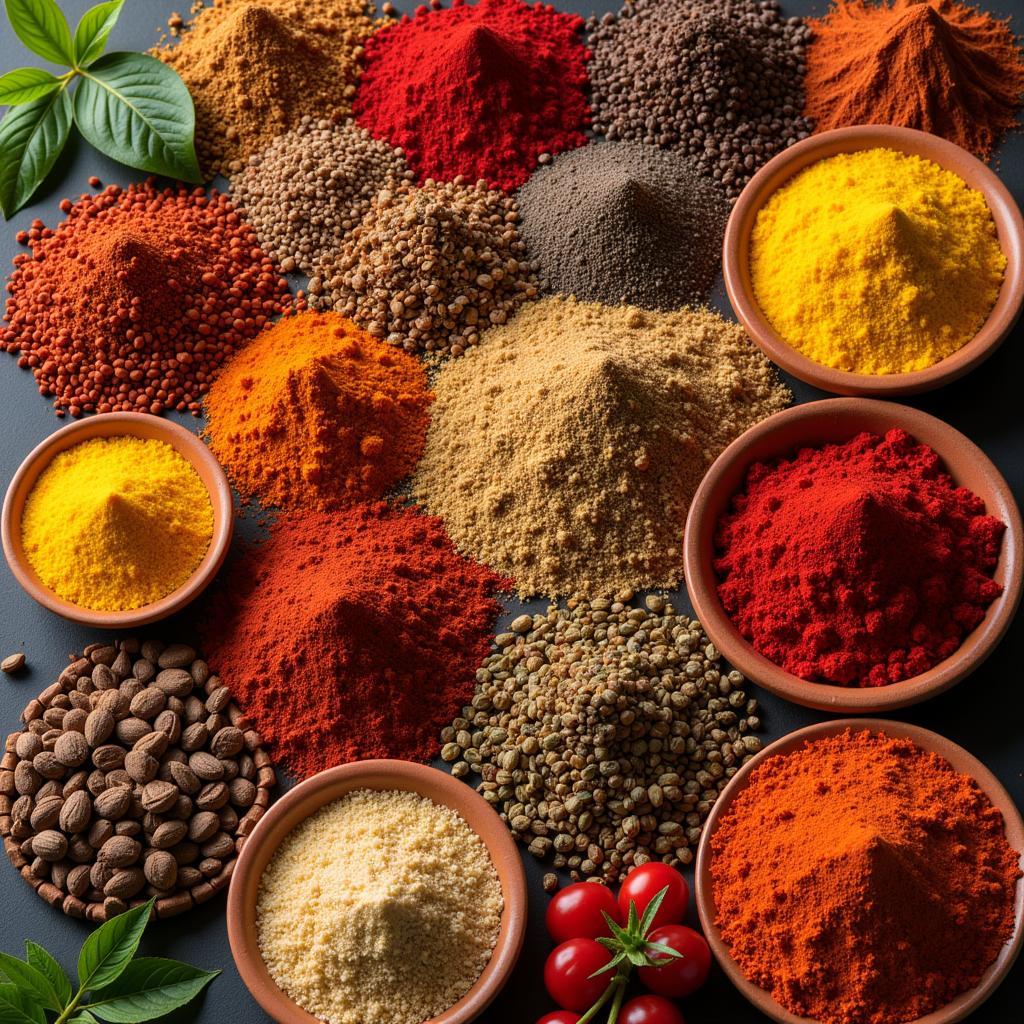The Versatile and Delicious World of African Cornmeal
African Cornmeal, also known as maize flour, is a staple ingredient in many African cuisines. Its versatility and nutritional value have made it an integral part of traditional dishes and modern culinary creations across the continent. This article delves into the fascinating world of African cornmeal, exploring its history, culinary uses, nutritional benefits, and cultural significance.
A History of African Cornmeal
Corn, the source of cornmeal, was first domesticated in Mexico thousands of years ago. It gradually spread throughout the Americas and eventually reached Africa via the transatlantic slave trade. The introduction of corn had a profound impact on African agriculture and cuisine, as it thrived in the diverse climates and soils of the continent. Over time, Africans developed unique ways of processing and using cornmeal, resulting in a diverse range of traditional dishes.
The Many Faces of African Cornmeal
African cornmeal is available in various forms, each with distinct characteristics and culinary applications:
- Fine Cornmeal: Often used for making smooth porridge (pap), polenta, and some types of bread.
- Medium Cornmeal: A versatile option for making a variety of dishes, including ugali, fufu, and thicker porridge.
- Coarse Cornmeal: Used for making grits, cornbread, and some types of flatbreads.
Popular Dishes Featuring African Cornmeal
African cornmeal is a star ingredient in countless traditional dishes across the continent. Some notable examples include:
- Ugali (Kenya, Tanzania, Uganda): This dense, starchy porridge is a staple food in many East African countries. It’s typically made with water, fine or medium cornmeal, and sometimes salt or vegetables.
- Fufu (West Africa): A doughy food made by pounding or grinding cooked root crops like cassava, yams, or plantains, often mixed with cornmeal. It’s served as a side dish or used to scoop up sauces and stews.
- Pap (South Africa): A smooth, creamy porridge made with fine cornmeal, water, and often milk. It’s a popular breakfast food and can be served with various toppings like sugar, butter, or fruit.
- Amasi (South Africa): This fermented milk drink is a popular South African beverage. Cornmeal is sometimes added to give it a thicker texture and more complex flavor.
The Nutritional Value of African Cornmeal
African cornmeal is a good source of carbohydrates, fiber, and some essential vitamins and minerals, including:
- Vitamin B6: Important for metabolism and nerve function.
- Iron: Essential for red blood cell production.
- Magnesium: Plays a role in bone health and muscle function.
However, it’s important to note that cornmeal alone does not provide all the nutrients your body needs. A balanced diet that includes a variety of fruits, vegetables, and proteins is crucial for good health.
The Cultural Significance of African Cornmeal
Beyond its nutritional value, African cornmeal holds a deep cultural significance in many communities across the continent. It is often associated with tradition, family, and communal gatherings. Many traditional festivals and celebrations feature dishes made with African cornmeal, showcasing its important role in social and cultural life.
“African cornmeal is more than just food. It’s a symbol of our heritage and a reminder of our roots,” says chef and food historian, Aisha Mamadou. “It’s a shared experience that brings families and communities together.”
Exploring More African Cornmeal Dishes
The diverse culinary traditions of Africa offer a wealth of delicious and unique dishes featuring African cornmeal. Experiment with different recipes and explore the rich flavors and textures this versatile ingredient can offer.
Ready to expand your culinary horizons? Explore some of these resources:
Conclusion
African cornmeal is a versatile, nutritious, and culturally significant ingredient that plays a vital role in the cuisines of many African countries. Its history, culinary uses, and cultural significance offer a glimpse into the rich and diverse food traditions of the continent. Whether enjoyed as a simple porridge or incorporated into more complex dishes, African cornmeal continues to nourish and delight generations of Africans and those who appreciate its unique flavors.


